From Individuals With Aphasia and Brain Injuries to Poets: How the Book I Don’t Think I Did This Right Came to Be
By Kathryn Paulson, Poet, Brendan Constantine, Poet, and
Jerry K. Hoepner, PhD, CCC-SLP
I Don’t Think I Did This Right is a collection of poems by individuals throughout the United States with stroke-based aphasia and traumatic brain injuries (TBI). This group of poets, who meet weekly through Zoom, is known as the Thursday Night Poets. The Zoom event developed out of local aphasia and brain injury groups. The Chippewa Valley Aphasia Group has provided weekly community aphasia group programming since 1997. This group was founded by Mayo Clinic Health Systems–Eau Claire (MCHS-EC) speech-language pathologists (SLPs) Mary Beth Clark and Tom Hintgen. In the late 2000s, when he took a position at the University of Wisconsin–Eau Claire (UWEC), Dr. Tom Sather began providing weekly services through the Blugold Aphasia Group. In 1999, Mary Beth Clark and Dr. Jerry Hoepner, both employees at MCHS-EC at the time, started the Mayo Brain Injury Group, which has offered monthly meetings ever since. After moving to the University of Wisconsin–Eau Claire in 2008, Jerry founded the Blugold Brain Injury Group, which offers bi-monthly meetings to individuals with acquired brain injuries on opposite weeks of the Mayo Brain Injury Group. As UWEC is a teaching institution, graduate SLP students co-facilitate each of these groups. What follows is the story of how a group of people learned about the power of poetry.
Sparked by the Pandemic
The COVID-19 pandemic created a need for additional connections and space for expressing the sense of isolation that members of brain injury groups were feeling. Individuals in our aphasia groups were feeling the effects of social isolation imposed by the pandemic as well. So, individuals from the Chippewa Valley Aphasia Group and Blugold Aphasia Group were invited to join individuals from the Blugold Brain Injury Group and the Mayo Brain Injury Group. The facilitators began to seek out additional opportunities for members to connect virtually, outside of our regular meetings. As a first step, Jerry invited Douglas Kidd, a TBI survivor and advocate who had started a support group in the Toledo, Ohio area and written about recovery and living with TBI, to speak. He came to an adjunct virtual meeting to describe his experience—and just happened to share some of his poetry.
It was clear from his poems that writing poetry about his experience was cathartic and healing. Inspired by his use of poetry as a way to express his inner struggles and renegotiate identity, group members were asked if they would be interested in a three-week poetry workshop. A handful of members responded with an unresounding, “Sure, we’ll try that. Why not?” response. Most of them had either never written poetry before, or it had been many years, even decades since they had. Their idea of poetry was something less accessible, less personal, than what they were about to encounter.
How It All Came Together
In 2017, speech-language pathology professor-researcher-clinician Dr. Michael Biel presented at the Aphasia Access Leadership Summit in Florida about a poetry workshop he co-facilitated for individuals with aphasia. After hearing this presentation, Jerry Hoepner, Tom Sather, and Mary Beth Clark invited Michael to the 2018 Chippewa Valley Aphasia Camp. Michael agreed to come, but only if he could bring Brendan Constantine, a Los Angeles-based poet and Michael’s co-facilitator. That set the wheels in motion. At camp, Brendan had a unique ability to acknowledge the competence of campers with aphasia and make poetry feel so accessible.
Fast-forward to 2020, and Jerry reached out to Brendan to see if he would consider co-facilitating a similar workshop for individuals in the brain injury and aphasia groups. Brendan enthusiastically agreed; the first workshop date was set for Thursday, October 29, 2020. The plan was for two to three Thursday evening sessions. At the end of the second week, Brendan asked, “Does anyone want to do this again next week?” The response was a resounding “Yes.” Each session for the next several weeks ended with the same question from Brendan and the same response from the attendees. At some point, we implicitly decided that this would become an ongoing program. From that point forward, the Thursday Night Poets became a bonified group. Now, individuals living throughout the United States participate in the group.
“We Don’t Think We Did This Right…”
There’s a story behind the title of the first book by the Thursday Night Poets. Each week, Brendan would end our sessions with homework for the following week. Often, he shared an inspirational poem or two, provided a short, written prompt, and discussed possibilities. True to his inner acknowledging and revealing competence principles, he also shared that if this prompt didn’t inspire them, they could ditch it and write whatever they wanted. The following week, we began sessions with sharing poems related to the homework prompt.
A common, almost universal, response was: “I’ll share, but I don’t think (or I don’t know if) I did this right.” It became such a habit that each time a poet said it, we expected something quite amazing. Not getting it right meant not doing it the exact way that Brendan expected or wanted, or how a ‘real poet’ would respond to the prompt. Rather than rejection, the response to the homework was instead an embrace of something unique, unexpected, and beautiful. The poets began to learn that there is not one ‘right’ way to write poetry, there are many. They began to realize that their challenges with word finding, formulation of syntax, and memory deficits were strengths when it came to poetry. In fact, several poets commented on the fact that poetry helped them to overcome those challenges.
Finding New Identities
As the group members relaxed, the pressure to use a specific word or phrase in a particular way decreased and they often found the words and phrases they thought were missing. It was like watching identities bloom and re-emerge. Every time we thought the group had produced their best poem, we marveled when they returned the following week having expanded their potential to meet new heights. Students were also transformed, as their initial apprehension about how poetry related to therapy was replaced by an awe of the power of poetry to reveal the growth in our poets’ ability to express themselves each week. They too were learning how to acknowledge and reveal competence and how to foster engagement in something meaningful and identity-changing.
From Ragtag Attendees to Poets
In the world of aphasia rehabilitation, Aura Kagan (1998) coined the concepts of acknowledging and revealing competence.1 Acknowledging competence is the practice of communicating to an individual with aphasia (or anyone for that matter) one’s recognition of their knowledge, capability, and intelligence. Likewise, revealing competence involves taking the perspective that the individual with aphasia has meaningful things to share, and when they encounter struggles expressing their thoughts, the communication partner ensures a means of response by supporting other modalities of expression (e.g. writing, written choices, drawing, gesturing, etc.). These are core principles of counseling and communication that well versed speech-language pathologists employ with any individuals with communication impairments.
At the outset, most of the attendees were not poets—perhaps with the exception of Douglas Kidd. Some individuals only initially attended for something to do during the pandemic, which we all expected would be ending soon anyway. Some were just there to listen and learn. Brendan had a way of engaging attendees in the beauty and accessibility of poetry. Brendan also teaches poetry to teenagers at the Winward School in Los Angeles—an independent, college preparatory school for grades 7 to 12. He clearly knows where to begin when selecting poems that feel approachable, not stuffy, or off-putting, to novice learners and would-be poets. Brendan has an uncanny ability to match his poems to where learners are at, beginning with approachability and gradually pushing the bounds as learners grow. This pairs well with his ability to infuse confidence, competence, and risk-taking values into his learners.
Acknowledging and Revealing Competence
In aphasia rehabilitation terms, Brendan acknowledges and reveals the competence of the poets. He adheres to these principles intuitively and as well as any trained SLP. Brendan’s ability to incrementally ramp up the level of challenge, to meet learners where they are, coupled with his ability to acknowledge and reveal competence, are central to the transformation attendees experienced as a part of Thursday Night Poets. A few months into our weekly meetings, the regular attendees were hooked. They were now card-carrying, full-fledged poets. This was infused into their identity, and they began to refer to themselves as poets.
Brendan’s Perspectives: A Poet, a Teacher, a Kindler of Words
One of the reasons I teach poetry is that it keeps me teachable. This is because it scares me to death. I’m a career author with several books to my name and a body of published work, and yet it’s fair to say that the apprehension I felt on entering my first classroom hasn’t diminished for 25 years. Though it has changed some.
At the beginning, I mostly worried about embarrassing myself. Gradually, however, my frustrations matured into a genuine terror of wasting anyone else’s time. It’s been my experience that most people who sign up for a poetry class already have something they need to express, something urgent. Even those students—of which I was one—attracted by the romantic identity of ‘poet,’ likewise carry a surplus of unexpressed feeling. Thus, the notion that I might inadvertently ‘ruin’ poetry for someone else—by making it inaccessible, or worse, boring—is a distressing one.
But, as I say, it’s perhaps this vulnerability that keeps me from becoming too set in my opinions, promotes surprise, lets me change my mind. I know several professors who are emphatic that all the great ideas have been taken and that no one, certainly no student, has anything new to say. I can’t help but wonder if this attitude is a hazard of being too comfortable. So, while I still panic before every class, by the end, I’ve learnt something.
Such has been the case with the Thursday Night Poets for the last three years. The writers in this group routinely inspire me to put aside what I think I know about poetry. They show me again and again its potential for clarity and empowerment. And perhaps most important of all, they remind me who poetry is ‘for.’
If your only experience of poetry is its most public face—that is, if you pick up a poetry magazine or go to a reading—you might conclude that its practitioners are rather remote and cliquey; only poets tend to read it or attend events. One reason for this is the fact that the estimated audience for poetry in the country fluctuates between 5% and 11%. The number of Americans currently excited about Pickleball is 20%.
Another isolating factor is that with such a limited audience, the only way to make a career of it is to claim to be a professional. But how exactly does one qualify as a professional empath? In my opinion, such distinctions only serve to discourage. The truth—and the great lesson exemplified by the authors in this anthology—is that poetry belongs to anyone in need of an emotional vocabulary. Indeed, I say as much in my Foreword for the book.
As has already been emphasized, the Thursday Night Poets group is made up of writers who share an experience of aphasia or traumatic brain injuries. Their abilities to process language have been compromised in different ways, and yet, through poetry they have discovered a new means of expression, a new way to ‘speak.’ They render plane throughout this collection of what Paul Valery called the “language inside language.”
Another thing these poets demonstrate consistently is the authority granted by metaphor. For instance, in poems such as ‘My Hands Remember’ by Sheree Nelson or ‘The Ring’ by Rochelle A. Anderson, both poets show us a world where everything is capable of witness, from our hands to whatever they can hold or point to. And when the poet speaks on behalf of the phenomenal world, their words are unimpeachable. One might as well argue with the moon.
Let me be clear, I’m not a speech pathologist, nor have I made an organized study of either aphasia or TBI. However, since Fall 2020, I have watched astounded as a group of people who previously had struggled to make their hearts and hopes known, manifest clear and intuitive voices. Further, they now speak for each other. I do very little at our meetings now (!) but listen and learn.
Jerry: Creating I Don’t Think I Did This Right – and Beyond
I Don’t Think I Did This Right reflects the Thursday Night Poets’ early poetry work. Our poets, though proud of their book, often reflect on the growth and improvement they have sustained since its initial compilation. Creating this book was integral in forming the group attendees’ identities as poets. Some of the poems are reflections on their journey with aphasia and brain injury recovery. Other poems are simply expressions of other life experiences, or their take on one of Brendan’s prompts. As the poets began to explore and experiment with this mode of self-expression, they wrote poems that use different cadences, visual formats, phrasing, stanzas, poetry genres, and topics. This resulted in poems that are beautiful, sad, joyous, and introspective, providing a glimpse into the souls of the authors. Individual styles and voices emerged, which have carried on through the poets’ more recent works. It is also important to note that the creation of the book from the order of poems to the painstaking process of formatting and editing was done by the poets to ensure that it was a true reflection of their work. Having written a few textbooks myself, these tedious steps are akin to weathering a storm, a badge of honor. I’m so proud of the poets for their tireless commitment to the process of producing a book.
I’m happy to share that the Thursday Night Poets have released their second book, Poetry is Chocolate. This second volume illuminates the growth of our inaugural poets as well as introduces our newest members who joined the group after the first book was in production. Poetry is Chocolate is a collection of the poets’ reflections on the experiences of stroke and brain injury, recovery, and living with aphasia and TBI.
It’s remarkable how a simple idea can grow to something so significant. The Thursday Night Poets group simply created a space where individuals with aphasia and brain injuries could connect with one another, exploring poetry as a vehicle for self-expression. Brendan planted the seeds through his prompts, humor, and encouragement. He nurtured their awakenings as poets. My students helped to structure the meetings, balancing time between poetry writing and guiding the book project. This required a great deal of clinical skill in order to guide while keeping the poets in charge of decision making. Ultimately, the poets are responsible for the eloquent words. While at first it may feel paradoxical, asking people who have trouble expressing themselves to do just that through poetry, we learned that there is power in poetry.
Kathryn Paulson: From the Poet’s Perspective
Emily Dickinson once wrote, “I am out with lanterns, looking for myself.”
When I first read this line, I got goosebumps. I felt like Emily wrote that for me. Experiencing an acquired brain injury (ABI) has not been a blessing, but it has been an opportunity. One of the things that was stolen from me following my ABI was my identity. Today’s society teaches you that who you are is closely linked to what you do for a living. Prior to my ABI, I was a respiratory therapist for almost 19 years. After my injury, although I eventually returned to work as a respiratory therapist in a smaller hospital with fewer hours, I found that I could no longer do the job in a way that was important to me and still have any semblance of a life. It took me a while to figure that out. Poetry gave me an opportunity to rediscover. Myself. And language.
My life changed on December 20, 2016. I fell at home on my concrete driveway slipping on black ice. I sustained a skull fracture with a subarachnoid hemorrhage near the temporal lobe of my right brain. So began the journey to my lifelong recovery. Back in October 2020, our group, led by Jerry Hoepner, was able to explore the benefits of poetry for people with acquired or traumatic brain injuries and aphasia. Poet Brendan Constantine, a Los Angeles based poet, along with speech language pathology student clinicians from UW-EC and Jerry, offered three online classes to explore the basics of poetry and how, with some prompting, individuals could write out their feelings, experiences, and their stories. We have met almost every week since then. I have even taken to teaching and moderating classes when other instructors can’t attend. Poetry is different from other writing because often, the rules can be broken. That definitely works to our group’s advantage. Brendan made it clear from the beginning that he treated our class no different than any of the other classes he taught. We were writers; we all just happened to have our brain injuries in common as well.
Reading and writing poetry has changed my life. It has changed my perceived identity. After my fall, my self-esteem, among other things, had taken a blow. I didn’t realize it then, but I felt lost. I was no longer a respiratory therapist. I was just Kathryn, Kathryn with a brain injury. I felt the change more than I let on, even today. I am gaining confidence and continue to tell my story to a wider and wider audience, realizing how many people in this vast universe our stories will help.
I have begun to heal in ways traditional therapy for brain injuries never touched. Poetry helps me understand myself better. Reading and writing poetry helps me quiet my chaotic mind. I read, see, and hear words in a distinct way now. I want my written words to positively affect others, both with brain injury and without. I still struggle with certain cognitive changes, headaches, and fatigue. I believe that will always be part of my life. But I refuse to let it be my whole life. I am now a poet. A published poet, as a matter of fact. Our group has now written two books.
Individually, I have also published “Coal Smoke” in Rattle (2022), “Empty Bottles” in TBI Hope and Inspiration (2022), and “Carry It With You” in Poets Choice (2023) in the Zest with Pets edition. Some of my poetry has been born of pain but reflects my strength. Some of my poems are quirky, some are just about ordinary things. Most of my poems have some story behind them.
Any individual with any type of conflict, be it ABI/TBI, PTSD, stroke, eating disorders, anxiety, depression, or abusive situations can benefit from writing. It doesn’t have to be poems. But if it is, the poems don’t need to be published in order to make them useful. The poems don’t even have to be ‘good.’ In fact, most of the poems I have written, I wouldn’t categorize as that (good). (What poet does think that?!) I have found solace in scribbling my feelings down after a hard day or a stressful event. I put it away and ignore it. When I feel like I can come back to it, I usually end up typing it out and that helps me process my feelings. I may edit those feelings into a poem, I may not, but I have those poems to prove to myself and others that it is possible to get through hard situations. I fight my evils with poetry. Poetry has taught me to fall in love with words, even those words I still lose today. It forces me to use other words and those other words can be what makes my poetry the strongest. I refuse to let my mind erasify my life.
ERASIFY
One thousand six hundred and ninety days ago
I didn’t realize immediately
the depth of my losses
how my mind
would erasify my life
References
- Kagan A. Supported conversation for adults with aphasia: methods and resources for training conversation partners. Aphasiology. 1998;12(9):816-830.
Resources
To purchase the collection of poetry, I Don’t Think I Did This Right, click on the following link: https://www.biaw.org/books


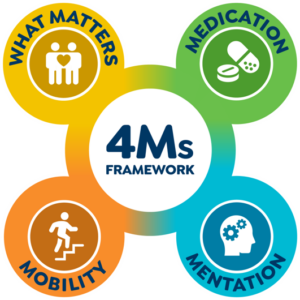
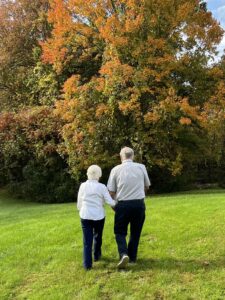
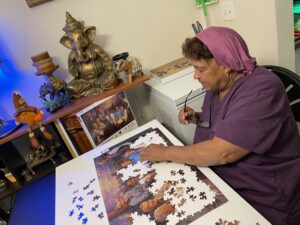
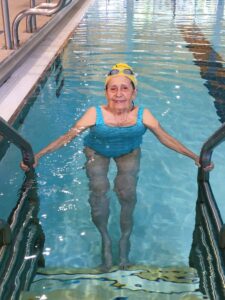
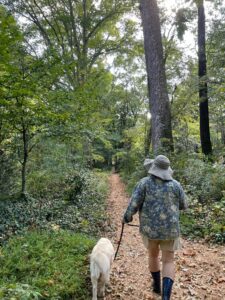
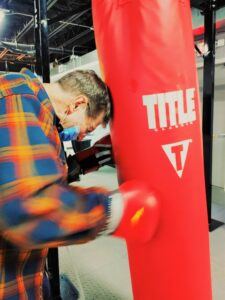
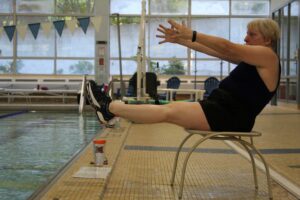
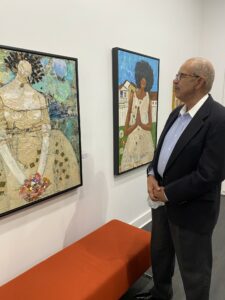
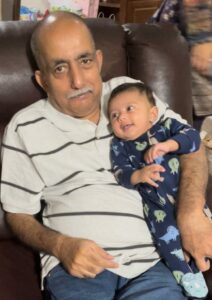
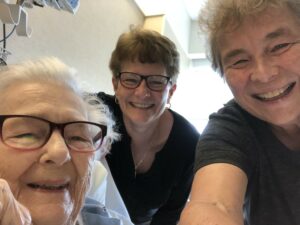
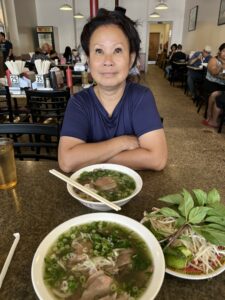
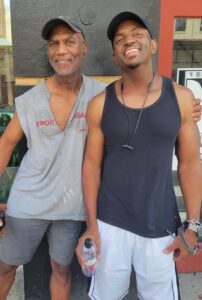
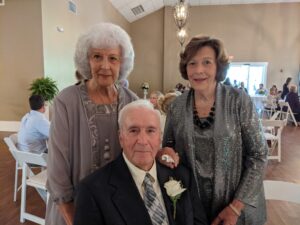
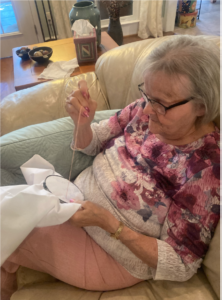
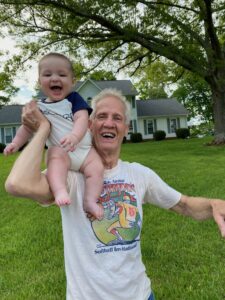
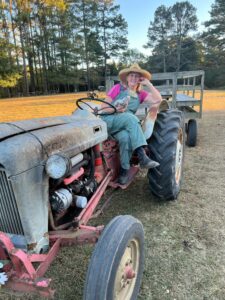
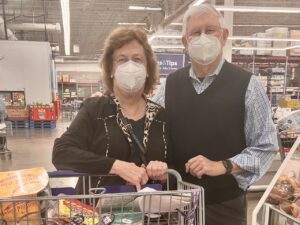
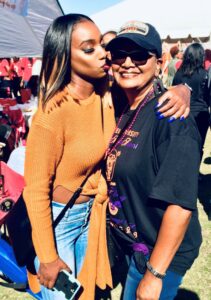
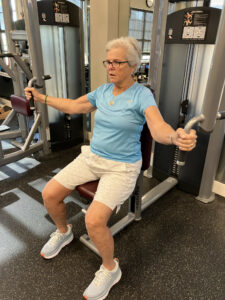
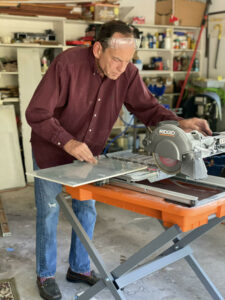
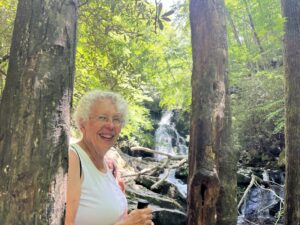

 Member since 2019 | JM14274
Member since 2019 | JM14274


NO COMMENT